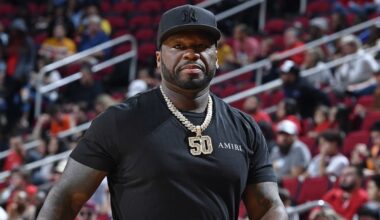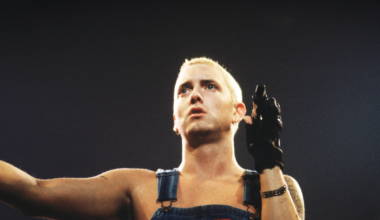Successful musicians have been getting sued for as long as they’ve been successful. More often than not, these claims range from the obscene to the ludicrous, as Jon Bon Jovi discovered in 2008.
Recently, Ed Sheeran spent weeks in court over his 2017 hit ‘Shape Of You’ after he was accused of plagiarising Sami Switch’s song, ‘Oh Why’. In the copyright battle, Sheeran was found innocent, and following the result, he lamented how “a claim is made with the idea that a settlement will be cheaper than taking it to court, even if there’s no basis for the claim”.
He added: “It’s really damaging to the songwriting industry. There’s only so many notes and very few chords used in pop music. Coincidence is bound to happen if 60,000 songs are being released every day on Spotify. That’s 22 million songs a year and there’s only 12 notes that are available.”
These claims have become much more common in the digital age, but even George Harrison had his career derailed by a lawsuit over his track, ‘My Sweet Lord’. Occasionally, these cases will be legitimate, but, usually, it’s an attempt at earning an easy payday.
In 2008, Samuel Steele announced his intention to secure $400 billion from Jon Bon Jovi, which is significantly greater than the annual revenue of the entire music industry. Steele was the frontman of Chelsea City Council, a group that, as of writing, have 0 unique monthly listeners on Spotify. He claimed Bon Jovi’s track ‘I Love This Town’ ripped off his effort, ‘Man I Really Love This Team’.
Steele decided to lodge the case after Bon Jovi’s song was chosen to soundtrack the television coverage of the Major League Baseball playoffs on TBS.
“I know I’m the little fish, and they’re the big fish, but they fucked with the wrong piranha,” Steele told the Boston Herald. “I know that I’m right,” Steele insisted. “I want credit, acknowledgement and an apology.”
However, U.S. District Court Judge Nathaniel M. Gorton dismissed the case, and deprived Steele of his $400 billion fortune. He said: “Applying the ‘ordinary listener’ standard, this court detects no musical similarity between the Steele song and the Bon Jovi song.”
Furthermore, attorneys operating on behalf of Bon Jovi told Judge Gorton, “online databases reveal nearly 100 songs that use the phrase ‘I love this’ in some form in their title.” Additionally, a musicologist said the two songs “do not share any significant similarity and are not substantially similar in lyric content, melodic content or harmonic content.”
Perhaps if Steele’s claim aimed for a little less compensation, he might have received an out-of-court settlement, and in shooting for the stars, he ultimately shot himself in the foot.





